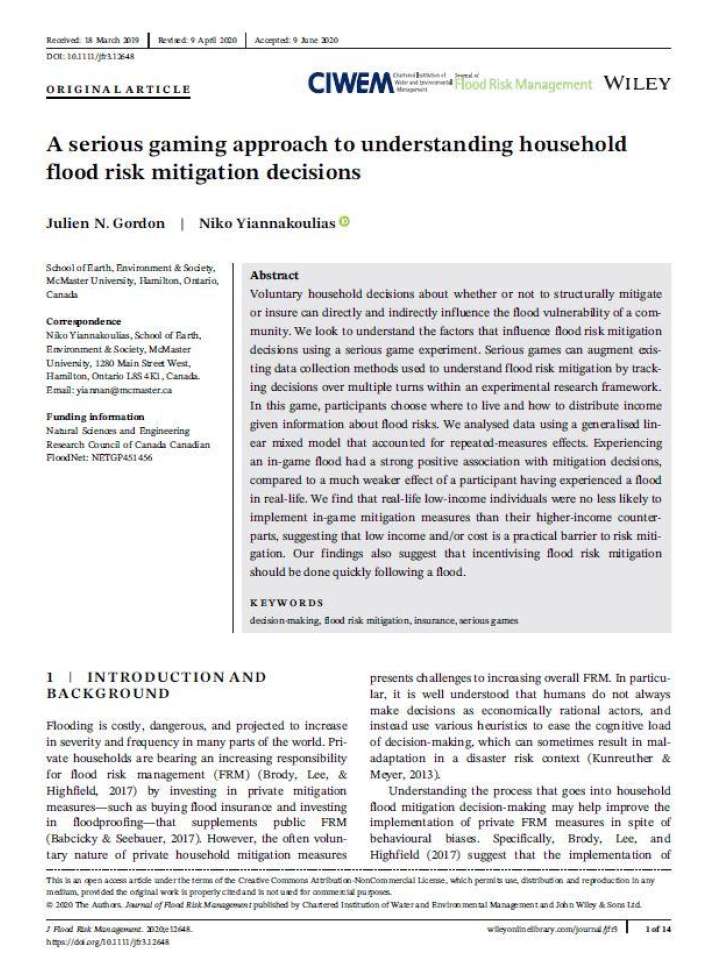A serious gaming approach to understanding household flood risk mitigation decisions
This research looks to understand the factors that influence flood risk mitigation decisions using a serious game experiment. Serious games can augment existing data collection methods used to understand flood risk mitigation by tracking decisions over multiple turns within an experimental research framework. In this game, participants choose where to live and how to distribute income given information about flood risks.
Experiencing an in‐game flood had a strong positive association with mitigation decisions, compared to a much weaker effect of a participant having experienced a flood in real‐life. The authors find that real‐life low‐income individuals were no less likely to implement in‐game mitigation measures than their higher‐income counterparts, suggesting that low income and/or cost is a practical barrier to risk mitigation.
The paper's findings also suggest that incentivising flood risk mitigation should be done quickly following a flood. Moreover, the researchers found that low‐income individuals were no less likely to implement mitigation measures than higher‐income counterparts, suggesting that lack of income and mitigation costs are important determinants of risk mitigation. Finally, the results suggest that communicating objective risk information may not be enough to encourage mitigation uptake.
Explore further
